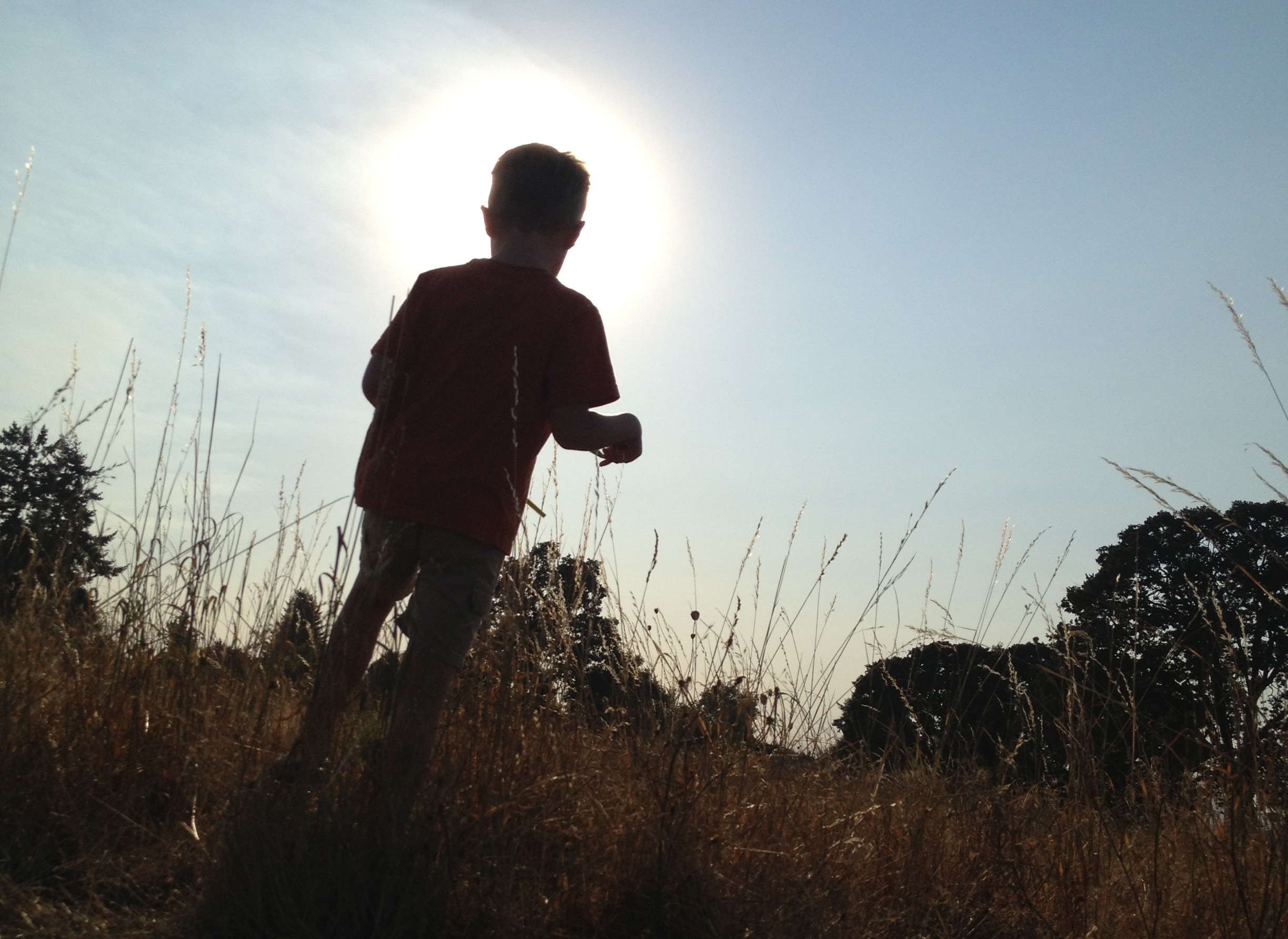Waiting in the Land of In-Betweens
It happened at the end of a long church conference. I was exhausted, but the preacher was in no hurry. I hate it when they don’t hurry.
“If you are the parent of a special needs child, come up and get prayer.”
I wanted to slip out the back, but six of our church staff were with me, and I knew they wouldn’t let me wimp out like that even if I tried. They had held up my arms for too long. So I dragged myself to the front of the sanctuary where a line of young ministry students stood eager to pounce. I chose a tall Canadian man in a brown, business-like sweater.
“My son Jack has severe autism,” I told him beneath the ringing synthesizers. “He’s seven, and he can’t speak and… yeah…” I stopped there to brace myself for a loud and sweaty prayer. But my Canadian merely closed his eyes and started to whisper. I leaned in to hear. He sounded gentle and confident. A prince next to his father’s throne. And then it happened: He said the word “breakthrough,” and I started to weep.
It was a frustrating moment because I thought I was done with all that. For more than two years, I had walked that familiar path of grief. Denial I remember, but only because my mom used it in an email, as in: “I think Jack has autism and you are in denial.” I laughed, thus proving her point.
Anger and Bargaining came and went quickly, but Depression lingered. There were two, maybe three years of numbness and hiding places. There were specialists and therapies for Jack, and for me, a new personality that wanted to be left alone. I used to be an extrovert, they say.
At the time, I failed to recognized the commonness of my journey. Only when I reached the end of it did my friend tell me,
“You’ve been going through the stages of grief, and I think you just reached Acceptance.”
It was a surprising revelation for two reasons. First, I had always thought of grief as something that follows funerals and longs for the past. I missed the obvious other kind; the kind that slumps forward, casting a permanent shadow over tomorrow that can no longer be.
But even more significantly, my friend’s assessment of my progress was spot on. I had come to terms with Jack’s condition. We had been playing together and laughing together like never before. Even on bad days, when he might be in the middle of an epic melt-down, I could still feel peace. Joy, even.
And yet despite all this, I still found myself at the front of a sanctuary in a snotty mess. Still craving “breakthrough” more than anything in the world.
Seven months have passed since that night, but I haven’t really left the foot of the stage.
I confess I want holes knocked through the wall that keeps my boy distant from me, my wife and children. I want sunbursts of language, comprehension, and relational abilities. I want him to have a future.
Some have told me to let this hope die and embrace my new normal. They say autism is part of who my son is, and if I struggle with it—if I treat his condition as a thing to be cured by human or Divine hands—I am rejecting him. This viewpoint has its merits, but the accusation inside it knocks the breath out of me, because I already accept and embrace my son. For everything he is. I delight in him, his curiosity, his affection, his laughter. And if he never learns speech, or safety, or independence, I will love him no less.
Others have told me just to try harder and refuse contentment. They imply that it’s my fault Jack hasn’t been healed or cured yet, and if I would just get with the right therapy or take authority (i.e., pray louder), then I would finally catch my breakthrough. That accusation hurts, too, because they don’t know how hard we have tried; how many nights we have held him, wept and begged God to intervene.
Here is my dilemma: if I pray too hard, I start fixating on change, and I become less satisfied with who Jack is today. But if I accept too hard, then I give up on a better future for my boy. And try as I might, I cannot see how to call that “loving.”
How, then, am I supposed to live? Neither of these extremes is correct. Not for me, anyway, and not for many parents of special needs children. I trust there is a solution, but it must come from Christ Himself. Who else knows how to hope all things, endure all disappointments, and love without condition?
So for now, I wait in a land just east of Acceptance and west of Breakthrough. Here, I get swept up in my son’s unbridled laughter, then in quick flashes of torrential fear. Here, I thank my Father for my boy, who is enough, and in the next breath, beg Him for more. This is where I wrestle with God: in the already not yet kingdom. The Land of In-Betweens.

